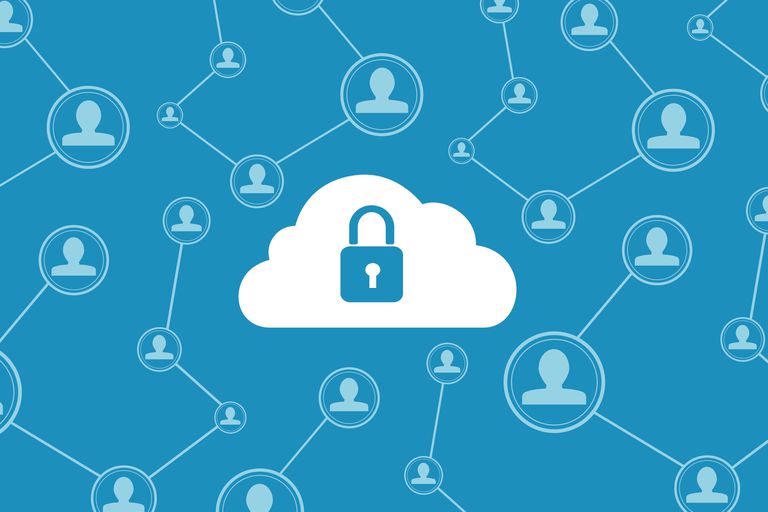

Data is one of the most sought after statistical information in the world. With the advent of social media sites and search engines, personal data has now transitioned into the internet.
Known as digital data, estimates give a data figure of 28, 875 GB found on the internet every other second.
For a minute, stop and think about the amount of data your online browser catalogues. Most browsers keep a record of the sites you visit and other online activity.
Your ISP also knows a lot about your online activity and could divulge your information to third parties. Facebook could sell your personal information to advertising companies.
Governments could also interfere with the privacy of its citizens by conducting covert surveillance without their permission.
With your data at risk, you are better of knowing measures you could take to protect your data online.
Threats to your data

The internet world is now more live than ever. Web browsers are cashing in on the many users having access to the internet. Browsers act like windows that usher you into the internet.
Anything you do online is catalogued by these browsers. Whether it is a simple Google search or gaining access to your bank, your browser is clearly a database to all your online activity.
Unlike days when your online activity could only be stored in your computer, browsers such as Chrome can store your information in Google account.
With such large chunks of information in your browser, many websites you visit can access your data in troves. Visualize a leaking drainage system that is splashing dirty water or sewage on the roads. Your data gets leaked to other websites in the same way.
Some of your information that is given away includes your software and hardware set up, your location, your social media accounts and internet connection. Some Smartphone browsers have the ability to detect the position of your phone and could tell whether it’s handheld or it is on the table.
Private browsing

The Internet Explorer is a brainchild of Microsoft. Because of the need for private browsing, it incorporated a private browser into its Internet Explorer 8 beta.
With this added feature of private browsing, you got the advantage of keeping your browsing history for as long as the browsing session lasts. Once you close your browser window, all traces of your browsing activity disappear.
This browser makes your browsing history untraceable by the different websites. You are safer when using it on a shared computer.
Your other alternative to using Chrome is the use of the Firefox browser. This open-source browser is also tailor-made for mobile phone users. Firefox focus is the privacy version developed for mobile phone users. However, total anonymity on the internet is something that is still far from possible.
Key browsers you want to look into to keep your data private include Opera, Tor browser and Firefox.
Search engines with a consciousness for privacy

Search engines revolutionized the internet space because of their quick response to searches online. First on the list came Yahoo and other search engines such as AltaVista and Ask Jeeves. The latest search engine to enter into the market was Google.
Google quickly turned the tables and could handle up to more than 3 billion searches in a single day. Google sought you out by giving quick answers to your questions. However, you also pay a price for their search service you have no idea about.
It sells your internet traffic and searches to Ad companies that sent you targeted ads based on your search queries. Apart from Yahoo and Google, that sell your data to any offer by an Ad company, you want to invest in a more secure search engine other than using a typical search engine.
There other search engines that can still give you quality answers to your searches without compromising on your data.
The DuckDuckGo is one such search engine that cares about your privacy. Launched in 2008, this browser has gone to the extent of summing up its privacy policy to its users. Their privacy policy reads something like “We don’t collect or share personal information”.
As a user, you benefit from the fact that your IP address won’t be logged against your searches. Other private browser options you want to try out are the SearX and StartPage.
Virtual Private Networks

A virtual private network creates a private connection between your computer and a remote server. What this means is that your internet activity gets to be invisible from other users on the internet. Your ISP, in particular, won’t be able to track your data online; except for the fact that you are connected to a VPN server.
VPNs may be construed to appear as software used by persons with illegal internet activities. However, nothing could be further from the truth as VPNs also accord you lots of other benefits. If using a public Wi-Fi, a VPN will protect you from prying eyes of hackers targeting your data.
That said, you better pay keen attention to the type of VPN you choose to use. Not all VPNs can keep your data private. You want to check the best VPN guide to help you make an informed decision.
Examples of VPNs you want to use are TunnelBear and the Express VPN.
Conclusion
The question of keeping private online is not one to be debated upon. Most tools and services we use for a smooth online experience are at the mercy of hackers and cybercriminals. Your favorite browser, search engine or email provider could easily come under attack from criminal activities online.
As an online user, your data is definitely under threat every second you are online. It is important that you have the right information for your online privacy. For instance, if browsing, you want to use a browser that will not catalogue your browsing history such as Opera. If searching for information online, safe browsers such as StartPage are worth trying out.
